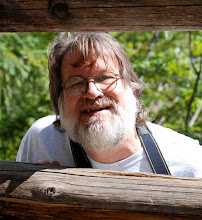What's in Store for Johnnie Cochran?
The news reported the death of famed trial lawyer Johnnie Cochran. He died of a brain tumor at age 67. He, of course, was the guy who (and I suppose there is a huge behind-the-scenes cast of support people to thank) got O.J. Simpson a much different fate than Scott Peterson got.
If it doesn’t fit, you must acquit.
Remember that exciting bit of overacting by O.J. on fit-the-glove day? (“Oooh. Too tight. Hurts my hand…”)
I found it rather ironic that the bulk of the stories I culled through on Johnnie were filed in Google News in the Entertainment section. That nicely plays to one of my favorite literary themes about news as soap opera, news as infotainment.
But here’s something you aren’t hearing much about in the news: As Johnnie soul-rockets into the depths of the universe, it’s time for the trial of his century. It’s time for his life review.
It’s time to meet up with Nicole Simpson and Ron Goldman. The charismatic lawyer reported as still believing his client’s version of the story of that bloody night is getting the treat most of us will have to die for—the truth about that landmark circus. I mean court case.
I’m sure if Nicole or Ron even care anymore about being murdered, they will pay a visit to the famous lawyer and exchange a few smoldering words. Whether it turns out to be a real oops or true vindication for O.J. despite that legendary “mountain of evidence,” I suspect the principals will enjoy their debriefing.
As for O.J., who presumably knows the truth of what he did or didn’t do, he still has a life review to look forward to. If he was a naughty killer, he will have to not only re-live his own actions, but he will experience in larger-than-this-life detail how his victims felt every nanosecond of the way. If he didn’t do it, he will learn in exquisite detail who did it and why.
My own intuitive belief about murder is that while it is a deeply awful and revolting crime, it is not perceived in the same way in the Great Beyond. First of all, if no one really, truly dies, as millions of near-death experiencers insist, then it automatically turns the crime from something less than pain and suffering to more of a moral philosophy discussion.
Often near-death experiences insist that many if not all deaths are pre-planned. If this is true, then murder takes on a quality not that far removed from making a murder mystery. In other words, there could have been a whole cosmic Earth School educational exercise behind the crime of the century. It could be karmic. It could be like a Master’s thesis.
If people transform into spirit rather than terminate forever, then unlike the loved ones they left behind, Nicole and Ron may have little attachment left to their former physical selves. While a huge shock to the ego, being murdered would not be a shock to the soul, especially if that bullet to the head sent the so-called victim to paradise.
In movies like Ghost, victims like Sam Wheat are shown slowly realizing that they are dead. That’s the model many people have if they even consider an afterlife. NDE accounts often offer information about a much quicker realization. Real people are not as dense as movie characters. “This is death? Cool!”
That’s certainly not to say that murder is victimless—just in case you think I’m giving people permission to blow someone away! You will have to experience every iota of pain you dish out, so say those who’ve done the life review gig.
Yet it still intrigues me to wonder what Johnnie Cochran is experiencing right now.
There’s a twist of irony to all this. A few months ago I attended an IANDS meeting—The International Association for Near-Death Studies. A woman, a first-time attendee, told of the time she was clobbered by a city bus while driving in her car. During that horrific crash she had a near-death experience.
As far as NDEs go, it was pretty standard fare (but of course standard fare for an NDE is pretty extraordinary for those of us who have never consciously left our bodies.) When she returned to her body to endure a long recovery, she had become more than a believer in an afterlife. She became a knower.
At meeting she mentioned that she was in the process of a legal battle with the municipally owned bus company to get compensated for her ordeal. She was very excited over just having secured the services on Johnnie Cochran.
I don’t know if the case has gone to trial or what the outcome was, but it sure makes me wonder if Johnnie got any inside information on what would turn out to be his future!

